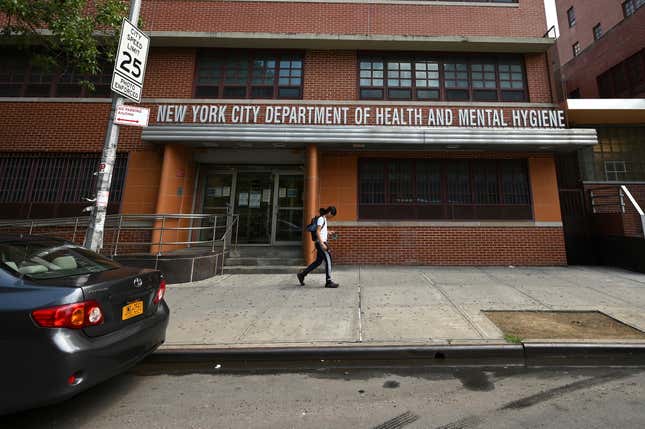
There are measures to be taken (and that should’ve already been taken) to keep the monkeypox virus (MPV) from becoming another hyper-stigmatized situation like HIV/AIDS. However, given the response to HIV and even coronavirus, it seems the government and healthcare system learn slowly (I mean…slowly) from their past mistakes.
If you think about it, not many federal databases have statistics inclusive of gender and sexuality. That’s why organizations such as the Human Rights Campaign have taken it upon themselves to track the numbers. Dr. Ada Adimora, an epidemiology professor at the University of North Carolina School of Medicine, emphasized this point noting that the absence of this data raises a major concern.
“There are some real problems that persist in all of these epidemics and they’re especially heightened in the pandemics. One of them is the lack of authority that the CDC has to get some essential data like race/ethnicity - this hinders the public health response,” Adimora said. “All the states are doing basically their own thing and they’re typically doing as well as they can but it would help if we had a more unified, centralized healthcare system. Inadequate investment in the public health system really takes a toll and they’ve been further exacerbated by COVID in the public health departments.”
Sean Ebony Coleman, founder and executive director of Destination Tomorrow, said a remedy to this issue is making sure the people being affected by the crisis are in the room where decisions are being made. This way, the response is more inclusive.
“Whether it’s healthcare, MPV, COVID, housing, criminal justice or police reform, all of these things impact LGBT community members particularly, communities of color. The worst thing that can happen is that you pass reform and it doesn’t have the cultural sensitivities for Black LGBT folks or Black trans folks,” said Coleman.
That being said, MPV shouldn’t be campaigned as a “gay” virus since research proves it can affect a variety of people. Dr. Adimora pointed out that right now, nothing indicates that people outside the LGBT community are immune from the virus. The stigma can cause immense harm given some healthcare providers have refused to see patients who don’t meet the “criteria” of an at-risk person.
“Having broader public health campaigns not only ensures you reach all of the same gender loving population who’s at high risk but you’re also reaching people from across sections of communities who are also more vulnerable populations when it comes to facing death and some of the more severe outcomes of transmitting the virus,” said Victoria Kirby York, deputy executive director of the National Black Justice Coalition.
Like Kirby York told me, viruses don’t discriminate. Educate yourself on how the virus is transmitted so you can protect yourself and others.
For more information on MPV, visit the CDC’s website to view signs, symptoms and the US case count.

